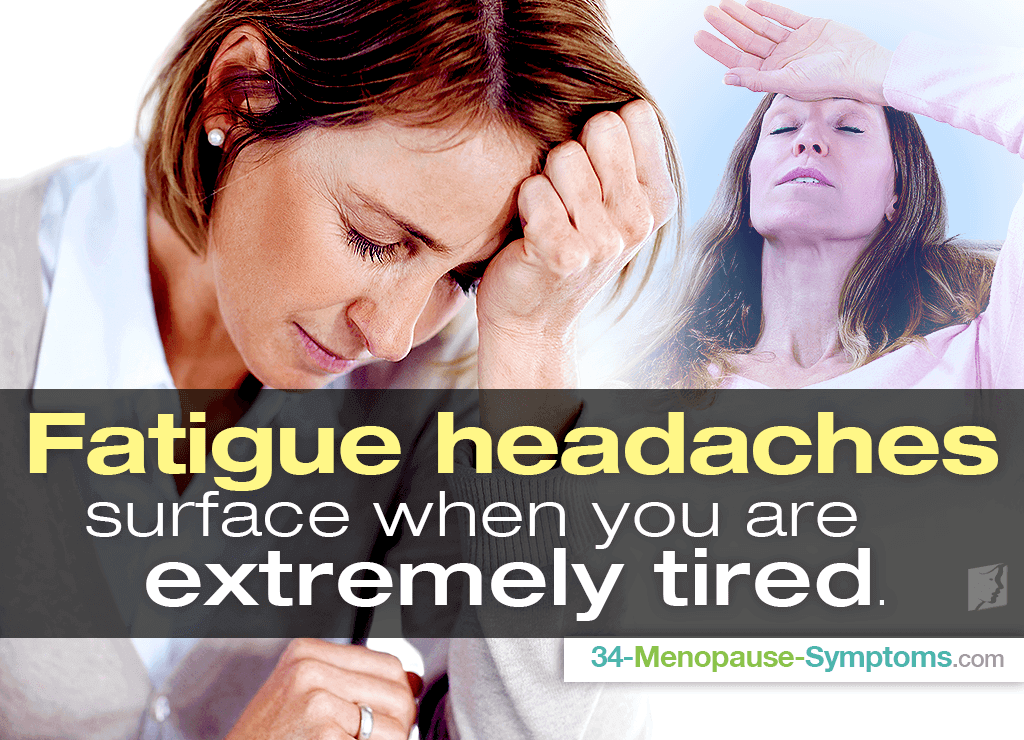Many women going through menopause experience extreme tiredness and headaches caused by fatigue. Luckily, tiredness headaches are not usually detrimental to your health and can be overcome with the right treatment.
Read on to learn more about fatigue headaches as a result of menopause and how to combat them to get back to a stable frame of mind.
What Is Fatigue?
Fatigue (also known as lethargy) can vary from a general state of tiredness to an exercise-induced burning sensation in the muscles. It is important to remember that fatigue can be both physical and mental and is characterized by an inability to continue functioning at the level of one's normal abilities.
What Is a Fatigue Headache?
Just like physical fatigue, mental fatigue is also common, and the constant state of drowsiness it inspires can lead to problems during the day. Accordingly, fatigue headaches are headaches that surface when you are extremely tired, signifying that you are suffering from mental fatigue.
What Causes Fatigue Headaches?
During menopause, it is generally accepted that fatigue headaches are due to hormonal imbalances resulting from decreased estrogen, which regulates homeostasis in the body throughout a woman's reproductive years. In addition to a lack of estrogen, there are a host of menopause symptoms that contribute to fatigue headaches, including insomnia, night sweats, depression, and more.
Nevertheless, pinpointing fatigue as a symptom of menopause can be difficult because it comes in so many forms (headaches being but one example). It can be a manifest as a loss of energy after exercise, motion sickness, or more serious conditions, such as chronic fatigue syndrome or hypothyroidism.
If you are concerned about your constant headaches and tiredness or think you may have a more serious condition, please talk to your doctor.
What Can Be Done About Fatigue Headaches?
While it's important to understand fatigue, this is only the first step in the journey to relieving it.
For constant headaches and tiredness during menopause, making changes to your daily lifestyle routine will work wonders in providing you with energy. Consume a diet rich in foods with phytoestrogens, plant-based estrogens, to fill the newly uncovered estrogen gap.
Also, adjust your sleeping habits to promote the best sleep possible by establishing a regular sleep schedule, maintaining your room at a cool temperature, etc. Excessive caffeine and alcohol or nicotine can also aggravate hormonal imbalance symptoms, such as fatigue headaches.
Ironically, a powerful method to fight fatigue is with exercise. The simple act of walking in the sun (getting a healthy boost of Vitamin D) can noticeably increase energy levels to combat extreme tiredness and headaches. Remember that no matter your health status, all adults should partake in at least 30 minutes of exercise, five times a week for optimal endocrine functioning.
However, for improved results, pair your efforts with alternative medicines. Phytoestrogenic herbal supplements - black cohosh, dong quai, red clover, etc. - provide women with much higher concentrations of phytoestrogens than foods, replacing the estrogen deficit in their bodies.
On the other hand, hormone-regulating supplements, like Macafem, encourage the endocrine glands to produce their own hormones, thus resolving the hormonal imbalance in a safe and effective manner.
Learn all you can about fatigue treatments, and finally have the energy you need to go about your daily life with ease.
Sources
- Dalal, P.K. & Agarwal, M. (2015). Postmenopausal syndrome. Indian Journal of Psychiatry, 57(Suppl 2), S222-S232. doi: 10.4103/0019-5545.161483
- Department of Health & Human Services: State Government of Victoria. (2015). Fatigue. Retrieved October 31, 2018, from https://www.betterhealth.vic.gov.au/health/conditionsandtreatments/fatigue




